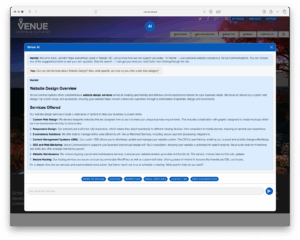Revamping Small Business Operations: Exploring Cutting-Edge Digital Tools

Title: Revolutionizing Small Business: An In-depth Guide to the Latest Digital Tools
Small businesses are the backbone of our economy, but they often face unique challenges when it comes to staying competitive and growing their operations. In the digital age, however, a host of innovative tools and solutions are available to help small businesses succeed. Let’s delve into some of the latest digital tools that are revolutionizing the small business landscape.
To start, let’s talk about customer relationship management (CRM) tools. Software like Salesforce and HubSpot have become critical for small businesses to manage and analyze customer interactions and data throughout the customer lifecycle. They help businesses streamline processes, improve customer service, increase sales, and boost profitability.
Next in line are project management tools like Trello, Asana, and Monday.com. These digital tools allow businesses to plan, organize, and manage resources to bring about the successful completion of specific project goals and objectives. They are instrumental in fostering teamwork, improving communication, and enhancing overall productivity.
Another game-changer is e-commerce platforms like Shopify and WooCommerce. These tools provide small businesses with a simple and affordable way to start an online store, thereby expanding their reach beyond the confines of a physical location. They also offer integrated solutions for marketing, SEO, and inventory management.
Then there are digital marketing tools like Google Analytics and Mailchimp. Google Analytics allows businesses to understand their audience better and make data-driven decisions, while Mailchimp is an all-in-one marketing platform that helps manage and talk to clients, customers, and other interested parties.
Lastly, cloud-based accounting software like QuickBooks and Xero are simplifying financial management for small businesses. They offer real-time data, automate tasks like invoicing and reporting, and provide insights to manage cash flow and growth.
In conclusion, the digital revolution has brought a range of tools that are helping small businesses streamline operations, improve customer engagement, broaden their reach, and boost profitability. The key is to identify the right tools that align with your specific business needs and to leverage them effectively to gain a competitive edge in the market. Small business owners must remember that in the digital age, technology is not just an enabler but a critical business ally.





